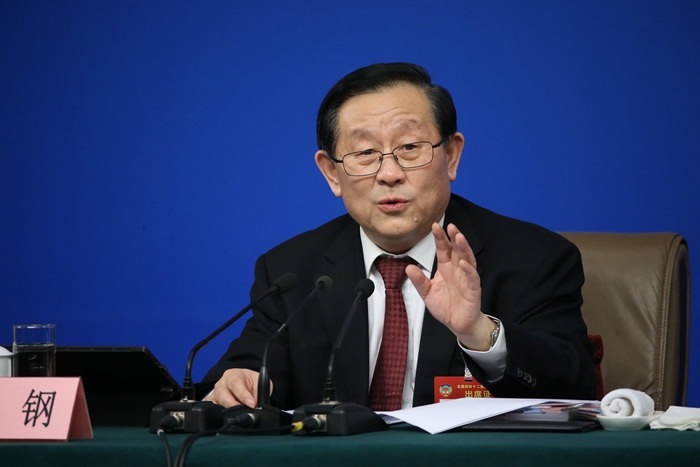China has launched a crackdown on academic paper fraud, the country's Ministry of Science and Technology (MOST) announced on Wednesday, in response to a scandal involving fabricated peer reviews that led to the retraction of 107 Chinese papers.
Tumor Biology, an academic journal published by Springer Nature, retracted the papers by Chinese authors published between 2012 and 2015 after an investigation found the peer review process had been compromised with fabricated email address of reviewers.
Wan Gang, minister of Science and Technology, convened a joint meeting on academic integrity on June 5 to address the issue, the announcement said.

China's Minister of Science and Technology Wan Gang. /CGTN Photo
A joint working team involving MOST, the China Association of Science and Technology (CAST), the Ministry of Education, the National Health and Family Planning Commission and the National Science Foundation was formed to investigate the scandal.
Research projects or funds undertaken or being applied for by the authors involved have been suspended, according to the announcement.
Authorities launched a crackdown on third-party institutions that participated in the fabrication, targeting the grey industry chain in academic paper publication.
It is not the first time that a large number of Chinese papers have been removed from academic journals and the grey industry chain exposed. In 2015, more than 100 Chinese papers were withdrawn by Modern Biology, Springer Nature and Elsevier.
Publishers said the removal of the articles was based on findings that the peer review was forged by a third party. Investigations showed that third-party institutions had promoted themselves as polishers of English papers for researchers, but had actually been providing ghost writing services, charging anything from several thousand yuan to tens of thousands.

Response by Springer Nature on the retraction of 107 Chinese papers. /CGTN Graphic
Meanwhile, MOST official He Defang said on Wednesday that it was abnormal and irresponsible for a publisher to retract large numbers of papers spanning several years altogether, stressing that the integrity of and contributions made by Chinese researchers as a whole should not be discredited because of the misconduct of some individuals.
Authorities will deepen the reform of China's research evaluation system, the announcement said.
Related stories:
China vows zero tolerance on academic fraud
China vows to change scientific evaluation system
Fake science peer reviews: Scandal suggests lack of credibility in Chinese academia










